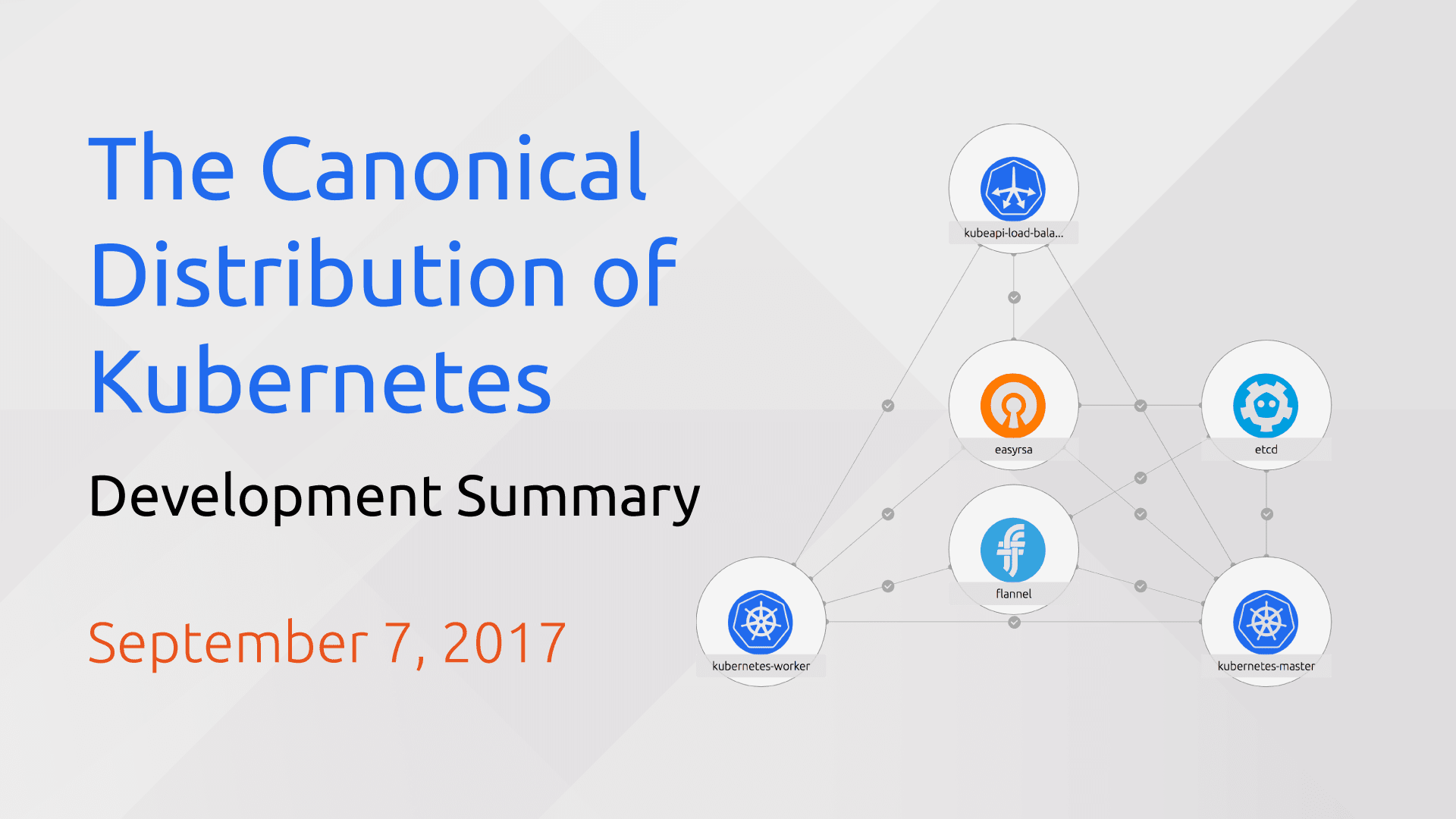Canonical Distribution of Kubernetes: Development Summary (9/7/2017)
Tim Van Steenburgh
on 7 September 2017
This article originally appeared on Tim Van Steenburgh’s blog

September 1st concluded our most recent development sprint on the Canonical Distribution of Kubernetes (CDK). Here are some highlights:
Canal Bundle
Our new Canal bundle is available for testing. We’ve been fixing a few issuesand expect to release the Canal bundle to the stable channel tomorrow.
If you need network policy support in your cluster, take it for a test drive on AWS with:
juju deploy cs:~containers/canonical-kubernetes-canal --channel edge
Once deployed, you can test network policy support by following the instructions on the Calico website.
RBAC and s390x
Our main focus was on finishing the Calico/Canal support, but progress continues on RBAC and s390x. We added a bunch of new tests for RBAC, and are working on building/publishing the last few pieces we need for an s390x cluster (nginx-ingress-controller image and an e2e snap).
1.7.4
We tested and released our latest round of charm bug fixes along with snaps for the 1.7.4 upstream binaries. If you were already on 1.7.0, you got upgraded automatically, and 1.7.4 is the new default for new clusters.
If you’d like to follow along more closely with CDK development, you can do so in the following places:
- https://github.com/kubernetes/kubernetes (cluster/juju directory)
- https://github.com/juju-solutions/bundle-canonical-kubernetes
- Kubernetes Slack channels and SIG meetings
- #juju on Freenode IRC
- [email protected] mailing list
If you’re interested in hacking on CDK, be sure to check out the latest blogby our friend Kos!
Until next time!
Talk to us today
Interested in running Ubuntu in your organisation?
Newsletter signup
Related posts
AWS IoT Greengrass comes to Ubuntu Core
AWS’s open source edge run time meets Canonical’s fully containerized OS for devices delivering a supported and robust end-to-end answer for enterprises...
Tutorial: getting started with AWS IoT Greengrass on Ubuntu Core
We recently announced that you can now benefit from the combined power of Ubuntu Core and AWS IoT Greengrass to bring the computation, storage, and AI...
How to avoid package End of Life through backporting
When a Git vulnerability hit systems past Ubuntu package end of life, teams had to reassess security options. Learn how to stay protected beyond standard support.
